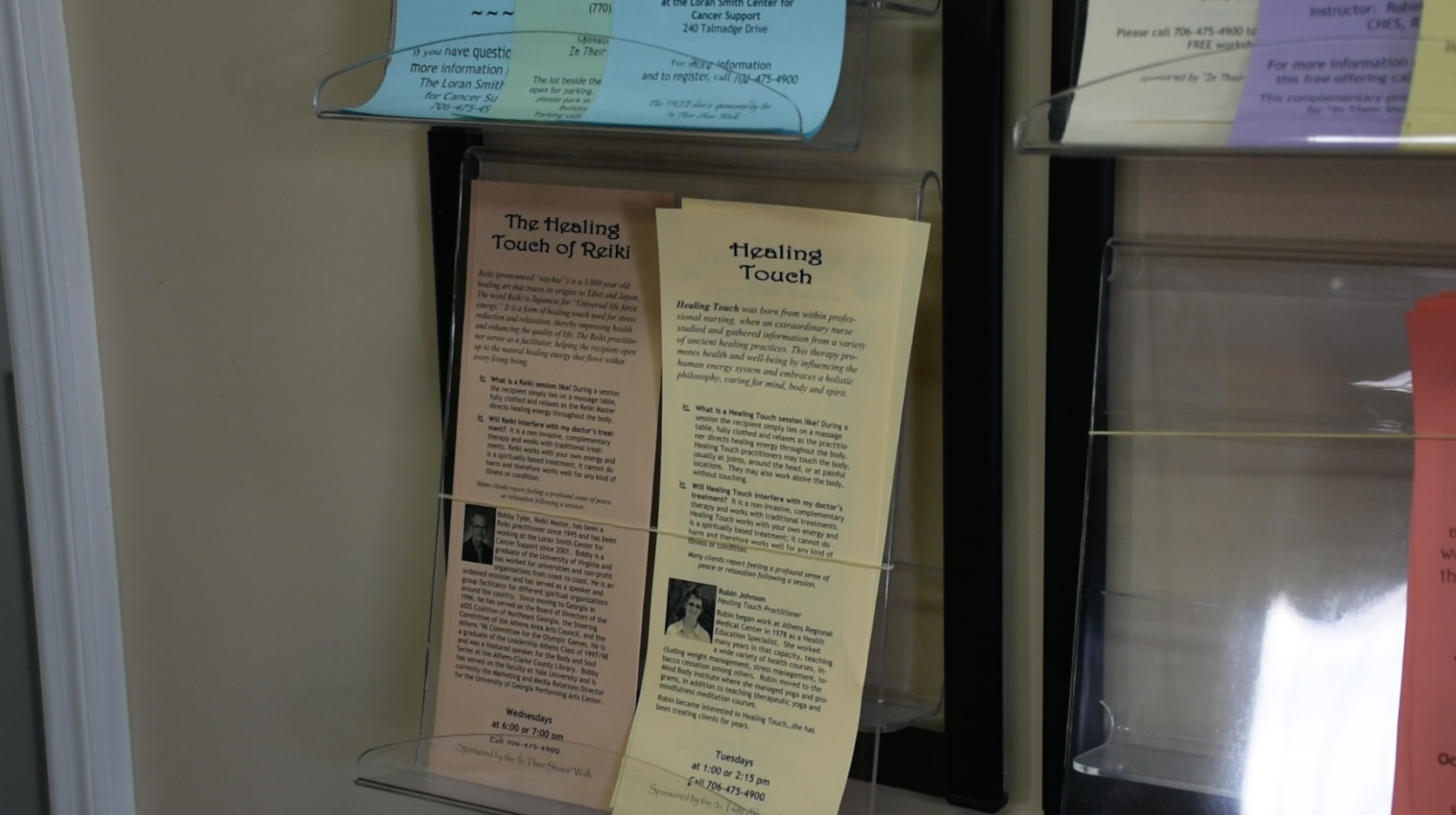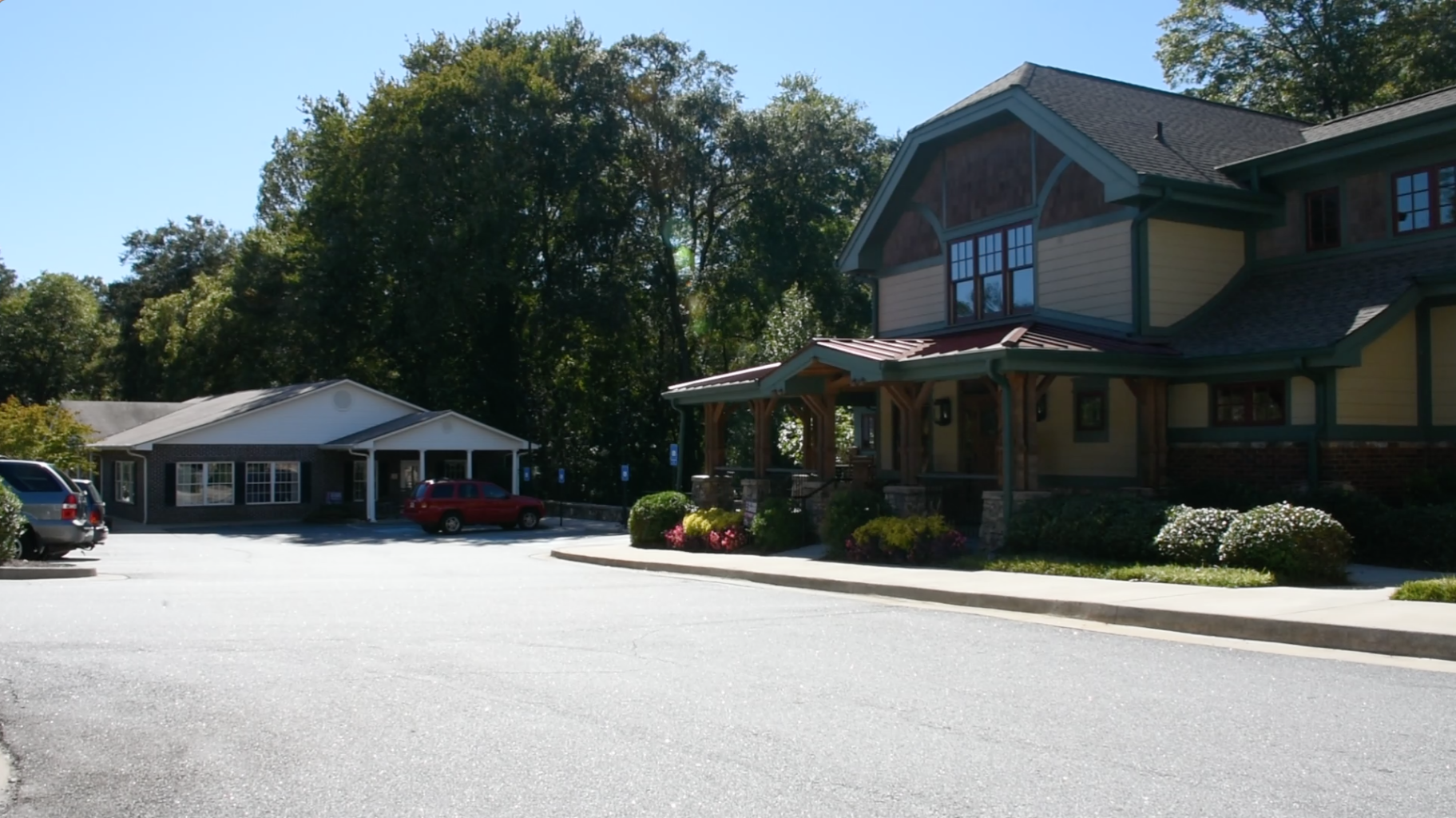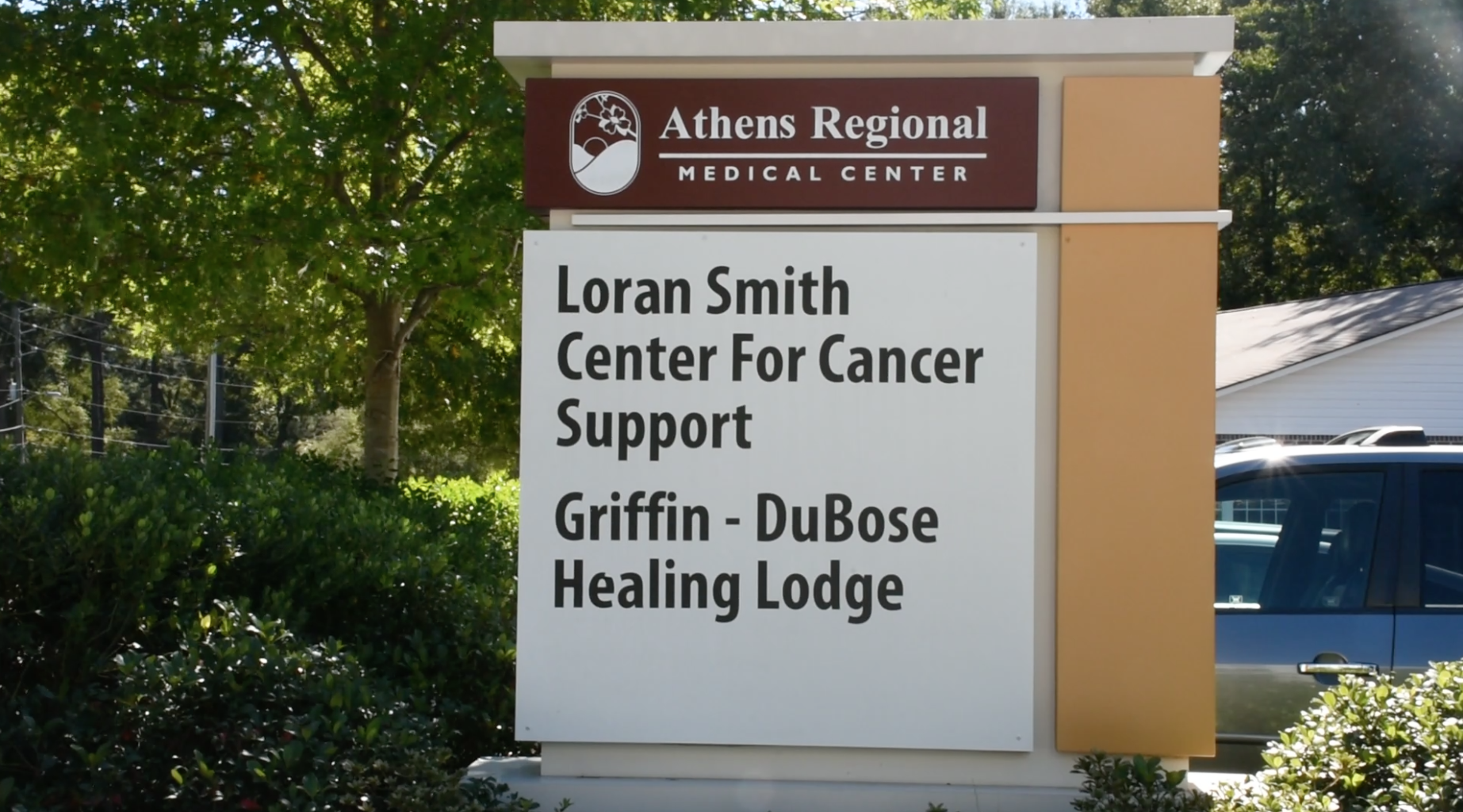Video and photos by KARLA DOUGAN – Broadcast Editor
Article by JURNEE LOUDER – News Editor
The Loran Smith Center for Cancer Support, which aims to provide support to cancer patients and their loved ones, has proven to be an important feature in Athens.
The Loran Smith Center for Cancer Support can be found at 240 Talmadge Dr.. For newcomers, it can be hard to find if you don’t know what you’re looking for. But once you find it, you won’t forget it.
The center doesn’t look like a conventional, hospital-like building. It looks like someone’s house and it provides you with an unwavering sense of intimacy. This is because the Loran Smith Center isn’t a hospital– it’s purpose goes beyond that.
The aim of those at the Loran Smith Center is to treat those who have been diagnosed with cancer. What makes the center different is its focus on caring for patients who need emotional and mental support and coping methods.
“(We look at) what is going on beyond just the cancer. How’s the cancer affecting you or your family? It’s a big picture approach. We’re not looking how we can treat the disease. That’s the doctor’s job. We’re looking at how we can treat the person,” Manager of Cancer Support Service Joel Siebentritt said.
When walking into the main building, a feeling of warmth exudes from the people who work in the building to the comfortable and inviting furniture and decor.
“Our waiting room is very different from a doctor’s clinic. We strive to be a very warm, hospitable environment that you would not find in the hospital, that you would not find in a doctor’s clinic,” Siebentritt said. “People who are struggling with cancer, whether you’re a patient or whether you’re a caregiver, require relaxation and a personal touch.”
All of the classes and sessions offered at the Loran Smith Center are facilitated by professionals. Sara Baker, who facilitated a creative writing class for 11 years, has fond memories of her relationships with the patients she helped. “We had a wonderful woman there named Lluana and she had been a teacher in the Athens Clarke County schools, and she just told the funniest stories. There’s just so many wonderful stories of people sometimes being able to express things they hadn’t been able to express in many many years,” Baker said.
For three years on Wednesdays, Sharon Stephens volunteers on site. She can be seen handling the front desk and making information brochures for patients. Previously, Stephens had her own experience with the Loran Smith Center.
“I am a breast cancer survivor, and I’ve taken advantage of some of the free resources and programs that are offered here. Then a few years later, my husband had cancer, and he got involved in the prostate cancer support group,” Stephens said. “(The center is) a unique place. There aren’t many like this around, and we just want to do what we can through the center.”
Siebentritt says that people like Stephens are beneficial and important to have around when it comes to healing cancer patients.
“(Stephens is) what I like to refer to as, lay patient navigators. They’re people who’ve been through it before, who are guides and mentors at times to others who are going through a new diagnosis. So, it’s great to have a person like Sharon here who’s mature, who’s experienced, and who’s been through it and brings all kinds of background and skills,” Siebentritt said.
The Loran Smith Center offers a variety of services to support those affected by cancer and their loved ones. Classes and therapeutic sessions like creative writing and Reiki are offered as well. Before retiring from the center, Sara Baker was able to teach a creative writing class for 11 years.
“We found that people would often improve physically and emotionally, and they would increase their communication skills and their social skills. Having cancer or any serious illness can be very isolating. It can take away your identity as a human being, and you just become a patient,” Baker said. “A lot of people buy into the way they’re treated by doctors as if they are their disease but they’re more than their disease. So, part of what we did in the workshop was help them remember who they are beyond their disease.”
The different programs offered are always facilitated by a professional. The group sizes are usually kept relatively small.
“With a group, you also need to think about dynamics. What’s the right size for a therapy group, for a support group? And for us, that can be anywhere from 10 to 20 people max. If you get more than 20 people, and you’re trying to do just a basic support group, you don’t have enough time to get around the whole circle and give everybody a chance to talk,” Siebentritt said. “If we have too many, then it’s sort of diluting the benefit.”
Many of the sessions take place in the lodge, a cabin-esque building directly across from the main building. The multilevel lodge is equipped with couches, fireplaces and a fully operational kitchen.
“One of the things that I love the most that we do (in the lodge) are patient and caregiver retreats. So, we’ll do a half day or a full day of retreats where we invite folks to come, and we really treat them to the various types of programs that we do that are shown in the literature to improve mood, to relax, and to connect with other people who are going through the similar circumstance,” Siebentritt said.
The newest addition to the Loran Smith Center, the Griffin-Dubose Healing Lodge, was built five years ago with the help of community donations. Manager of Cancer Support Services Joel Siebentritt says that the Lodge is designed to make the patients feel most comfortable. “The Lodge is an expansion, physically, for what we do. Nobody lives there, but lots of people ask, ‘Can I live in the lodge?’” Siebentritt said.
Working in environment like the Loran Smith Center can be draining emotionally for those who work with patients.
“It can be quite taxing. So, we would call that stress compassion fatigue. (It’s when) you give so much that you get tired of giving, and you can’t give anymore. So, we ask and we support each other, and we give each other opportunities to talk about what is going on, to cry about what is going on,” Siebentritt said. “That’s a big issue, and I think anybody in the caregiving profession (is) at risk because they’re seeing people who are sick.”
But, Siebentritt believes his job is worth the risk.
“I feel called to do what I’m doing, and I love it. I get more energy than I give on most days. I don’t mind sitting with people and counseling people who are going through difficult, sometimes traumatic life experiences. For some reason, I’m just kind of built to do that,” Siebentritt said.
For 15 years, the Loran Smith Center has been open. But, the work done at the Loran Smith Center was being done at Athens Regional before the center was even established.
The Loran Smith Center for Cancer Support offers programs for friends and families of patients. The center’s programs aim to provide information about cancer and its treatments to the patient’s loved ones. “It’s hard to take that first step, to come into a support center. So, we want to take the stigma out of that and help make it easy,” Manager of Cancer Support Service Joel Siebentritt said.
“The director of this program was hired a few years prior to this building being established, and up in the hospital, there was a small office with our nurse navigator and the director of the program, and they would sit in an 8 x 8 square office with a little desk and a little phone. They couldn’t both stand up together and push their chairs out or they’d run into each other,” Siebentritt said. “But, they were doing this work, in the hospital, with any cancer patient that was up there on the floor getting treatment.”
One of the goals for the Loran Smith Center is for people to feel comfortable while receiving treatment. Lauren Richards, a social worker for the center, believes this has been key to the center’s success.
“I think it’s the sense of community that people feel here. Whether it’s somebody that comes to a support group or just the warmth that they feel when they come in the front door and they meet with one of our volunteers, and it just really feels safe,” Richards said. “I think there’s a certain energy that this building has kind of absorbed, and that’s just from so many people coming through the doors over the years and getting support and feeling like they’ve been well cared for.”
According to Cancer.org, 355,870 people have some form of cancer in Georgia. This makes the Loran Smith Center so important to Georgia and the Athens community.
“Very few health systems our size have something like that. It’s quite neat. You find these kinds of facilities at research institutes. So, we’re really lucky to have this, and our patients and caregivers are really lucky to have this too,” Siebentritt said. “So, it’s a tribute to Athens Regional having some vision, and saying, ‘Yeah. This is necessary, and we’re gonna do it.’”


